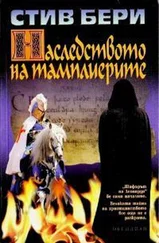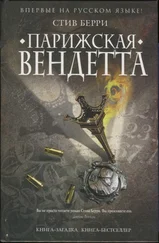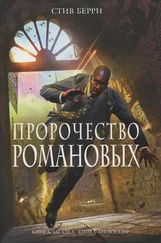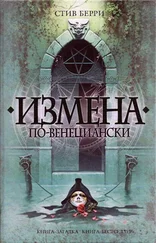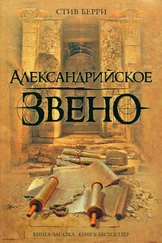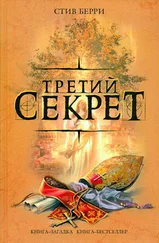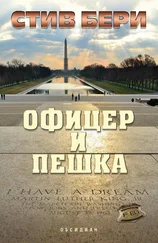“Stay away from me,” she said. “Don’t ever touch me again. Is that clear?” Kurt started to say something, but she waved him off. “Leave. Now.”
Her commands seemed more like pleading.
Seemingly resigned to his fate, Kurt Eisenhuth walked away. Only he, Cassiopeia, and the chancellor were left in the chamber.
“I wish to be alone,” Marie said.
“We need to go,” Cassiopeia said again.
Marie shook her head. “Your duties are over. I no longer require your services. Please express my thanks to Danny for all his help.”
“There will be repercussions from what has happened,” Cassiopeia said.
“I am sure there will. They do not concern me.”
Her comment was colored by sadness and regret.
Cotton was beginning to understand. “It’s over for you, too.”
Her hands gripped the marble of Eva Braun’s tomb in a tight embrace. “It is. I am the daughter of Adolf Hitler. Do you know how many would relish that fact? I would be their idol to worship. Those who stupidly believe that he was some sort of great statesman. And believe me, there are a sizable lot of Germans who quietly think just that.” She surveyed them with an insolent look. “Even you two. When you look at me, you think of him, don’t you?”
He could not lie. “I do. But I also see you, and I think of what you represent. You are quite different from him.”
“Unfortunately, few will make that distinction. I will forever be his daughter. The product of him and Eva Braun, the disgusting whore who resides right here, beneath this marble. And make no mistake, that was what she was. A whore, pure and simple. She profited from the blood of millions, all the while professing love for the maniac who engineered it all. I have no desire to harbor her genes, either.”
“What do you plan to do?” Cassiopeia asked. “Resign from the race. Walk away?”
Marie stepped across the chamber and found the gun Gerhard Schüb had tossed away. She lifted it from the floor. “I intend to do as Herr Schüb has just done and end the problem.”
Cassiopeia seemed astonished. “You can’t be serious?”
“I am quite serious. Sadly, my father was a Nazi. I’ve denied that fact all my life. But that’s what he was. For him to raise Adolf Hitler’s daughter would have been regarded, by him, as a great honor. And that disgusts me.”
Cotton watched the chancellor’s face, which was a shifting kaleidoscope of intense emotion. There comes a time when everything must end. His military career. Government service. Marriage. Life in Georgia. All those moments came for him. Now the woman standing before him, the leader of eighty-three million Germans, was making a choice of her own, one with far more at stake.
But a choice nonetheless.
He stepped close and reached for the gun. His eyes told her that he wasn’t going to stop her. In fact, he wanted to help. She handed him the weapon. He popped the magazine and noted it was empty.
Schüb had used all of the rounds.
He handed her his gun.
“ Bitte, Herr Malone. Hopefully, history will treat me kindly.”
“I have no doubt.”
She threw him a weak smile. “That is most kind.” Then she let out a long breath and seemed to steel herself, her former defiance shifting into resolve. “Now if you could leave me. I need to do this in my own way. Alone.”
He turned and headed for the door, motioning for Cassiopeia to come. She did not argue. There was no point.
They left and he gently eased the wooden door closed.
Schüb and Kurt Eisenhuth were waiting at the opposite end of the twisting gallery, where the spiral staircase started up through rock. Each withdrawn into their separate contemplations.
“Where is Marie?” Kurt asked.
“She is tending to some business,” he told him.
“What kind of business could she have in there?”
“The kind that should have been handled long ago,” Schüb said.
The old man apparently knew what was happening.
“Ironic, really,” Schüb said. “When I concocted a scenario a few years ago to divert some prying eyes, I envisioned a similar ending. It just wasn’t consummated then. All an act. A show. But now—”
A shot thudded, like a balloon popping beneath a blanket.
“What was that?” Kurt wanted to know.
Cotton envisioned the scene in the chamber beyond, the despair of acknowledgment welling up inside him. Marie Eisenhuth had done exactly as her natural father. She’d ended her life with her own hand. The difference, though, between the two was startling. Where Hitler died a coward to avoid the repercussions from the misery he’d wrought, the daughter took her life in an act of bravery. Normally suicide would be deemed a weakness, the result of a sick mind or an abandoned heart. Here it was the only logical means to stop something that had been started long ago.
Everything had a conclusion.
National Socialism. Fanatical politics. Campaigns. Careers.
Life, itself.
So he replied to Kurt Eisenhuth’s inquiry— What was that? —with the truth.
“Das ende,” he whispered.
The end.
CHAPTER SEVENTY-NINE
GARMISCH, GERMANY
TUESDAY, JULY 2
11:05 A.M.
Cotton stepped from the car.
It had been two weeks since Marie Eisenhuth’s death. To the south, visible miles away, the jagged peak of the Zugspitze stabbed an azure sky. Müncher Haus at the top of the mountain was indistinguishable from the snow-clad granite folds. He was at the far end of a valley, north of Garmisch, in a cemetery beside Kloster Egern abbey. There weren’t many graves, only those for the solitary monks who’d died in service to their church, and a few choice spots for those who’d been especially generous to the Benedictines.
Like the Herzogs.
Albert Herzog, his wife, and his adopted daughter were now all there.
Deep in the Bavarian soil.
He stuffed his hands into his coat pockets and started to walk through the graves, following a path that wound its way up a modest incline. Cassiopeia walked beside him. The state funeral had been attended by dignitaries from around the world. The nation had mourned Oma with a genuine sense of loss. The actual interment had been here, in a simple ceremony. There’d been no way to disguise any of what happened, not with both candidates for the German chancellorship dead, one murdered, the other dead by her own hand.
So the world had been told the truth.
No detail was omitted.
All of Bormann’s and Braun’s journals were released for inspection, the underground chamber at Löwenberg opened for photographers, the Swiss vaults exposed, the gold confiscated. DNA testing had confirmed all of the parentages. Schüb had made available all of the funds he still controlled, including the gold, which totaled into the billions of euros. Danny Daniels had appeared before the press and told the entire story. The credibility of a former president of the United States only added to its validity. Judging from the initial reaction, history was perhaps going to be kind to Marie Eisenhuth. She was being labeled a victim, unaware her entire life of the genes that dwelled inside her. Innocent of profiting off Nazi plunder. All regretted that she chose to die, but understood given the circumstances.
They approached the grave, the replaced earth dark, as if moist, a simple granite marker noting Marie Eisenhuth’s full name and a simple epitaph in German. OMA, LEADER OF GERMANY FOR 16 YEARS.
They stood in silence and absorbed the moment.
“It’s a shame,” Cassiopeia said.
He agreed, but had to add, “Unfortunately, the stain of the past was too indelible.”
“She did not deserve that fate.”
Читать дальше


